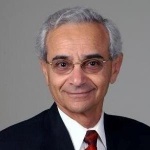October 4, 2011
Yemen: Saleh is back, now what?
When I heard on the news that King Abdulla of Saudi Arabia met with President Ali Abdullah Saleh of Yemen, I was nearly certain that the latter would return to Sanaa. Why else would the potentate of the Middle East meet with such a relatively insignificant leader, under attack by most of his people?
The return was even earlier than I had imagined. It was the green light Saleh needed, one would imagine. Now what?
Speculations about what will happen are rife. But, given the history of Yemen in the past 33 years, and all the facts, what would be the options for Saleh now?
If Saleh had any intention of stepping down, he would have done so on one of the three occasions when he agreed to the GCC proposal for transfer of power, and he could have done it this week from his bed in Riyadh.
Even if he truly was convinced that it was time to let go, his inner circle, headed by his son, Ahmad Saleh would be urging him not to do so. Their own fates would hang in the balance if he were to transfer power, and for Ahmad it would be the difference between oblivion and the 'throne'.
Besides there are those external powers that have learnt to trust him to maintain the status quo, without rocking the boat, and to maintain the drone attacks on the al-Qaeda elements in Yemen. They would want him to stay put.
The story of the assassination, in 1977, of former Yemeni president Ibrahim Al-Hamdi, together with his brother Abdulla , and the two French female dancers, has never been adequately investigated; but might be resurrected if Saleh were to leave, and a new government established. And who knows where the trail would lead?
Relinquishing power, it would seem from the above, is not an option. What does that leave?
In the face of the enormous demonstrations in Change Square in Sanaa, and in other cities, especially Taiz, the regime will deploy extremely harsh and brutal measures that will make the fatality rates among demonstrator much higher than currently, to the extent that demonstrations will shrink considerably.
There is already evidence on such escalation, in the past three days: "The shooting signals President Ali Abdullah Saleh's regime is stepping up its crackdown on the opposition following the leader's surprise return home.”
I believe this will be coupled with frequent abductions, disappearances and assassinations of any would-be leaders of the demonstrations.
Armed plain clothed agents of the regime will intermingle with the crowds on a much more regular basis and will use their weapons to demonstrate to the media the presence of armed "thugs and terrorists" among the crowds, as claimed by the regime in Syria.
There will also be some Yemenis who will be 'bought,' as happens in all such situations.
When that is complete, Saleh will then offer some real concessions which will stop short of his relinquishing power. Unless, of course, there is sufficient international pressure to force him to leave. I cannot see that happening, at present, although what happens to Gaddafi and Assad during the next few weeks may indeed influence the outcome.








